October 12 stands as one of history’s most eventful days, witnessing the rise and fall of empires, groundbreaking discoveries, and moments that shaped our modern world across centuries of human achievement.
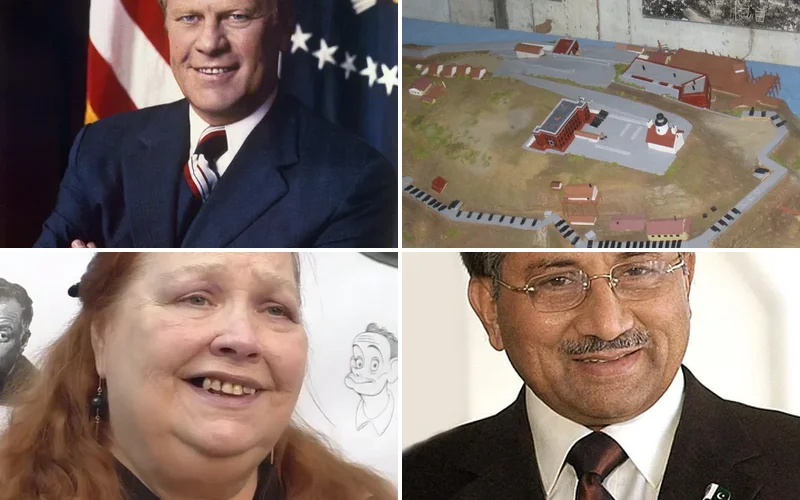
Politics and Government Events on October 12
1901 – Executive Mansion Officially Renamed White House
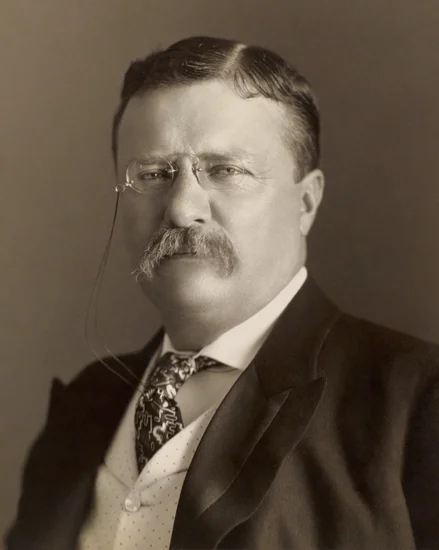
President Theodore Roosevelt made history by officially renaming the “Executive Mansion” to the White House. This symbolic gesture reflected America’s growing confidence as a world power.
The name change represented more than mere rebranding—it embodied the nation’s democratic ideals. Roosevelt’s decision created the iconic designation that would become synonymous with American presidential power.
1945 – Lao Issara Takes Control of Laos Government
The Lao Issara movement seized control of Laos’ government and reaffirmed the country’s independence from French colonial rule. This bold political maneuver marked a pivotal moment in Southeast Asian decolonization.
The takeover demonstrated growing nationalist sentiment across former French Indochina territories. This event would influence the broader struggle for independence throughout the region.
1973 – Nixon Nominates Gerald Ford as Vice President

President Richard Nixon nominated House Minority Leader Gerald Ford as Vice President following Spiro Agnew’s resignation. This historic nomination would prove crucial during the Watergate crisis.
Ford’s selection reflected Nixon’s need for a respected Republican leader with strong congressional ties. The nomination process would ultimately place Ford in line for the presidency during America’s greatest constitutional crisis.
1977 – Hua Guofeng Succeeds Mao Zedong as China’s Leader
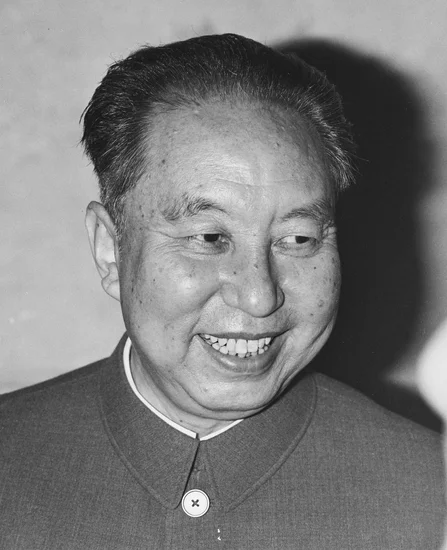
Hua Guofeng officially became China’s paramount leader following Mao Zedong’s death. This transition marked the end of the Cultural Revolution era and began China’s gradual modernization.
Hua’s leadership represented a bridge between Mao’s revolutionary ideology and pragmatic governance. His rise to power would eventually pave the way for Deng Xiaoping’s economic reforms.
1999 – Pervez Musharraf Seizes Power in Pakistan
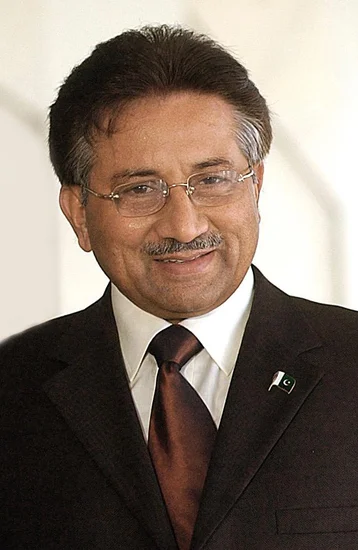
General Pervez Musharraf overthrew Prime Minister Nawaz Sharif in a bloodless military coup. This dramatic power shift altered Pakistan’s political landscape and regional dynamics.
The coup reflected deep tensions within Pakistan’s civil-military establishment. Musharraf’s actions would significantly impact Pakistan’s relationship with India and its role in regional conflicts.
2016 – Equatorial Guinea Declares Independence
Equatorial Guinea achieved independence from Spanish colonial rule after decades of struggle. This West African nation became one of the continent’s smallest independent states.
The independence ceremony marked the end of Spanish colonial presence in sub-Saharan Africa. Equatorial Guinea’s unique Spanish colonial heritage would distinguish it from neighboring former British and French territories.
Military and Naval History on October 12
1915 – British Nurse Edith Cavell Executed by German Firing Squad
German forces executed British nurse Edith Cavell for helping Allied soldiers escape from occupied Belgium. Her death became a powerful symbol of wartime sacrifice and resistance.
Cavell’s execution sparked international outrage and strengthened Allied resolve against Germany. Her martyrdom transformed her into one of World War I’s most memorable heroic figures.
1917 – First Battle of Passchendaele Claims New Zealand Lives
The First Battle of Passchendaele resulted in the largest single-day loss of life in New Zealand’s military history. This brutal engagement exemplified the Western Front’s devastating human cost.
New Zealand forces faced impossible conditions in the muddy Belgian battlefield. The battle’s casualties profoundly impacted the young nation’s collective memory and national identity.
1944 – German Occupation of Athens Ends
Allied forces liberated Athens from German occupation after years of brutal Nazi rule. The city’s liberation marked a crucial victory in the Mediterranean theater.
Greek resistance fighters celebrated alongside Allied troops as freedom returned to their ancient capital. This moment represented hope for occupied nations across Europe during the war’s final phase.
1945 – Desmond Doss Becomes First Conscientious Objector Medal of Honor Recipient
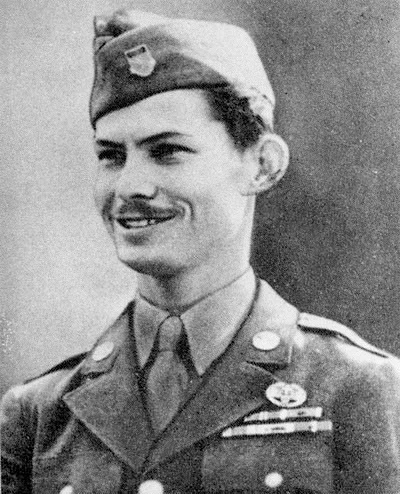
Desmond Doss received the Medal of Honor as the first conscientious objector to earn America’s highest military decoration. His extraordinary courage during the Battle of Okinawa saved countless lives.
Doss refused to carry weapons while serving as a medic, demonstrating exceptional bravery under fire. His actions proved that heroism transcends traditional military roles and personal beliefs.
2000 – USS Cole Attacked by Al-Qaeda Suicide Bombers
Two al-Qaeda suicide bombers severely damaged the USS Cole in Yemen’s Aden harbor, killing 17 sailors and wounding 39 others. This terrorist attack represented a new phase in maritime warfare.
The Cole bombing demonstrated terrorist organizations’ growing capabilities against military targets. This attack would later be recognized as a precursor to the September 11 attacks.
Science and Discovery Milestones on October 12
1928 – Iron Lung Respirator First Used at Boston Children’s Hospital

Medical professionals used an iron lung respirator for the first time at Boston Children’s Hospital. This revolutionary device would save countless lives during the polio epidemic.
The iron lung represented a breakthrough in artificial respiration technology. Its development marked a crucial advance in treating respiratory paralysis and other breathing disorders.
1964 – Soviet Union Launches Voskhod 1 Spacecraft

The Soviet Union launched Voskhod 1, the first spacecraft carrying a multi-person crew without pressure suits. This achievement demonstrated advancing Soviet space capabilities.
The mission represented another Soviet first in the escalating space race with America. Voskhod 1’s success paved the way for more complex human spaceflight missions.
1994 – Magellan Spacecraft Burns Up in Venus Atmosphere
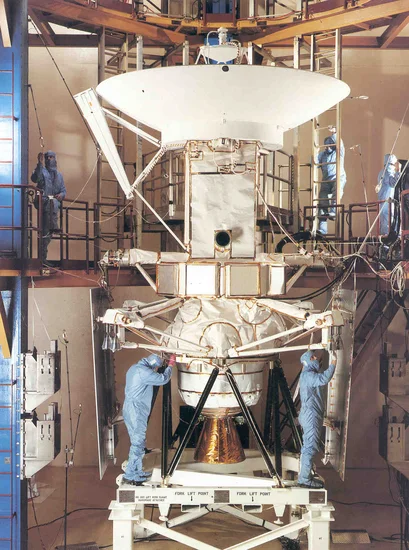
NASA’s Magellan spacecraft completed its mission by burning up in Venus’ atmosphere after mapping the planet’s surface. This controlled destruction concluded one of planetary science’s greatest achievements.
Magellan’s radar mapping revealed Venus’ geological history and surface features in unprecedented detail. The mission’s data transformed scientific understanding of planetary formation and evolution.
2005 – China Launches Shenzhou 6 Human Spaceflight Mission
China launched its second human spaceflight mission, Shenzhou 6, carrying two astronauts for a five-day orbital mission. This achievement solidified China’s position as a major space power.
The successful mission demonstrated China’s growing technological capabilities and space program maturity. Shenzhou 6’s success marked another milestone in China’s ambitious space exploration goals.
Cultural and Arts Events on October 12
1909 – Coritiba Foot Ball Club Founded in Brazil
Football enthusiasts established Coritiba Foot Ball Club in Curitiba, Brazil. This founding marked the beginning of one of Brazilian football’s most successful and enduring institutions.
The club’s establishment reflected football’s growing popularity throughout Brazil during the early 20th century. Coritiba would become a cornerstone of Paraná state’s sporting culture and identity.
1971 – Celebration of Persian Empire’s 2,500th Anniversary Begins
Shah Mohammad Reza Pahlavi launched extravagant celebrations commemorating 2,500 years of Persian monarchy. This lavish spectacle showcased Iran’s ancient cultural heritage to the world.
The celebrations attracted international dignitaries and cost millions of dollars despite widespread poverty. This display of royal excess would later contribute to growing opposition against the Shah’s regime.
1997 – John Denver Dies in Plane Crash
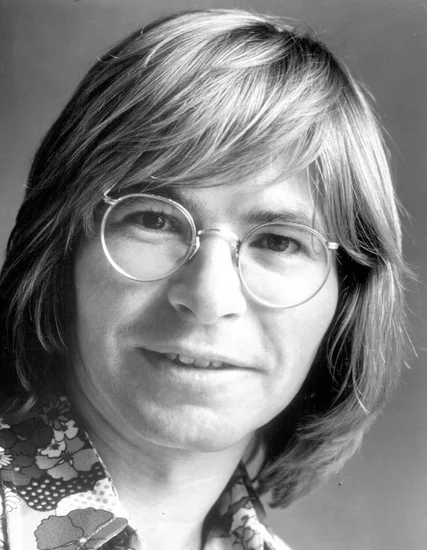
Beloved American singer-songwriter John Denver died in a plane crash in California. His death ended the career of one of America’s most popular folk musicians.
Denver’s music celebrated nature, love, and the American spirit through timeless songs. His passing marked the loss of a voice that had defined an entire generation’s musical landscape.
2018 – Princess Eugenie Marries Jack Brooksbank

Princess Eugenie married Jack Brooksbank in a royal ceremony at St. George’s Chapel, Windsor Castle. This wedding attracted global attention and celebrated British royal traditions.
The ceremony featured traditional royal pageantry while incorporating modern elements. Millions of viewers worldwide watched the celebration of love within Britain’s royal family.
Religious and Social Events on October 12
1963 – Jesuit Missionary Walter Ciszek Released from Soviet Prison
Reverend Walter Ciszek gained freedom after nearly 23 years of imprisonment in the Soviet Union. His release marked the end of one of the longest periods of religious persecution in modern history.
Ciszek’s survival demonstrated remarkable faith and resilience under extreme conditions. His eventual freedom represented a small victory for religious liberty during the Cold War era.
1998 – Matthew Shepard Dies from Hate Crime Injuries

Matthew Shepard died from injuries sustained in a brutal hate crime attack in Wyoming. His death galvanized the LGBTQ+ rights movement and sparked national conversations about hate crimes.
Shepard’s murder highlighted the urgent need for hate crime legislation protecting sexual minorities. His tragic death became a catalyst for significant advances in LGBTQ+ civil rights.
2010 – Finnish TV Program Sparks Mass Church Exodus
Nearly 50,000 Finns resigned from the Evangelical Lutheran Church following a controversial television program. This mass exodus reflected changing attitudes toward traditional religious institutions.
The program’s impact demonstrated social media’s power to mobilize public opinion. This event marked a significant shift in Finland’s relationship with its established church.
2012 – European Union Wins Nobel Peace Prize
The European Union received the Nobel Peace Prize for its contributions to peace and reconciliation in Europe. This recognition honored decades of diplomatic achievement and international cooperation.
The award acknowledged the EU’s role in transforming Europe from a war-torn continent into a peaceful union. This recognition validated European integration as a model for global cooperation.
Business and Economic Events on October 12
1983 – Former Japanese Prime Minister Convicted of Bribery
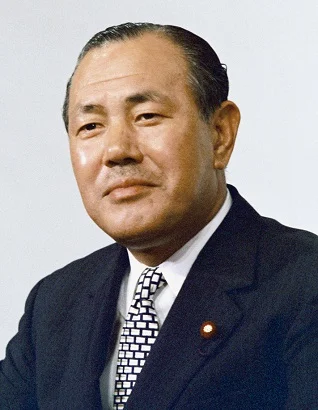
Former Prime Minister Tanaka Kakuei was found guilty of accepting a $2 million bribe from Lockheed Corporation. This conviction rocked Japanese politics and business circles.
The scandal exposed deep corruption within Japan’s political establishment and its relationship with international corporations. Tanaka’s downfall marked a turning point in Japanese political accountability.
1933 – Alcatraz Becomes Federal Penitentiary
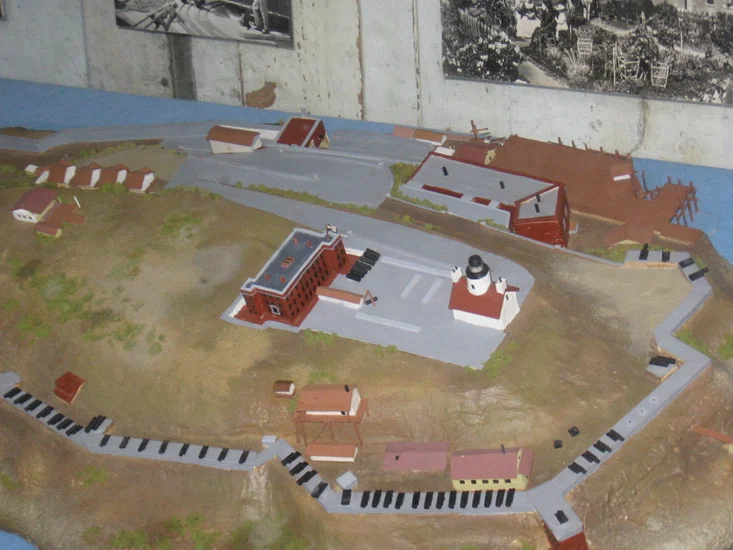
The military fortress Alcatraz transformed into a federal penitentiary designed to house America’s most dangerous criminals. This conversion created the nation’s most infamous prison.
Alcatraz’s reputation as an escape-proof facility captured public imagination and media attention. The prison’s island location made it a symbol of ultimate incarceration in American culture.
1976 – Indian Airlines Flight 171 Crashes in Bombay

Indian Airlines Flight 171 crashed at Santacruz Airport in Bombay, killing 95 passengers and crew members. This tragedy highlighted aviation safety concerns in developing nations.
The crash prompted investigations into airport safety procedures and aircraft maintenance standards. This disaster led to improved aviation safety regulations throughout India’s growing airline industry.
Transportation and Infrastructure on October 12
1962 – Columbus Day Storm Devastates Pacific Northwest

The Columbus Day Storm struck the Pacific Northwest with record-breaking wind velocities, causing $230 million in damages and killing 46 people. This natural disaster tested the region’s infrastructure resilience.
The storm’s unprecedented power brought down power lines and destroyed buildings across multiple states. Recovery efforts demonstrated the importance of emergency preparedness and infrastructure modernization.
1970 – Nixon Announces Troop Withdrawal from Vietnam
President Nixon announced plans to withdraw 40,000 more American troops from Vietnam before Christmas. This decision marked another step in the controversial Vietnamization policy.
The announcement reflected growing public pressure to end American involvement in Southeast Asia. Nixon’s withdrawal strategy attempted to balance military objectives with domestic political demands.
1979 – Typhoon Tip Becomes Largest Recorded Cyclone

Typhoon Tip achieved the distinction of becoming the largest and most intense tropical cyclone ever recorded. This massive storm system demonstrated nature’s incredible power and meteorological extremes.
The typhoon’s unprecedented size and strength challenged weather forecasting capabilities and disaster preparedness systems. Tip’s record-breaking characteristics advanced scientific understanding of tropical cyclone formation.
Sports and Recreation on October 12
2019 – Eliud Kipchoge Breaks Two-Hour Marathon Barrier
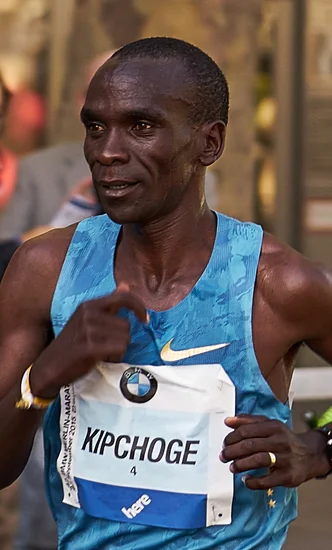
Kenyan runner Eliud Kipchoge became the first person to complete a marathon in under two hours, finishing in 1:59:40 in Vienna. This achievement represented one of athletics’ greatest milestones.
Kipchoge’s historic performance shattered previous conceptions of human endurance capabilities. His breakthrough inspired countless athletes and demonstrated the power of human determination and scientific training methods.
1906 – Joe Cronin Born in San Francisco

Future baseball Hall of Famer Joe Cronin was born in San Francisco, California. His childhood passion for baseball would lead to an illustrious career as player and manager.
Cronin would become one of baseball’s most respected figures, combining exceptional playing ability with outstanding leadership skills. His contributions to the sport earned him lasting recognition in baseball history.
1975 – Marion Jones Born in Los Angeles

Olympic champion Marion Jones was born in Los Angeles, California. Her early athletic talent would eventually make her one of track and field’s most celebrated sprinters.
Jones would dominate women’s sprinting during the late 1990s and early 2000s before controversy surrounded her career. Her achievements demonstrated the heights of athletic excellence and the complexities of competitive sports.
Notable Births on October 12
1935 – Luciano Pavarotti Born in Italy
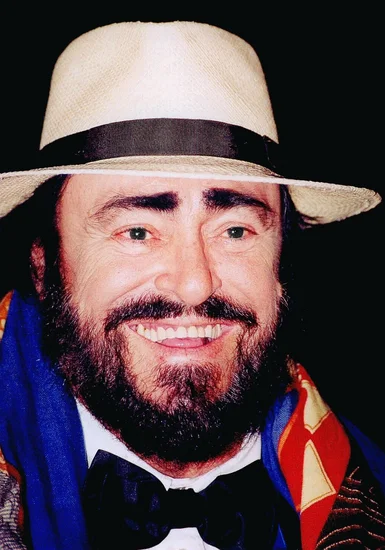
Legendary tenor Luciano Pavarotti was born in Modena, Italy. His extraordinary voice would eventually make him one of opera’s most beloved and internationally recognized performers.
Pavarotti’s career brought opera to mainstream audiences worldwide through television and concert performances. His passionate performances and charismatic personality transformed classical music’s popular appeal.
1968 – Hugh Jackman Born in Australia
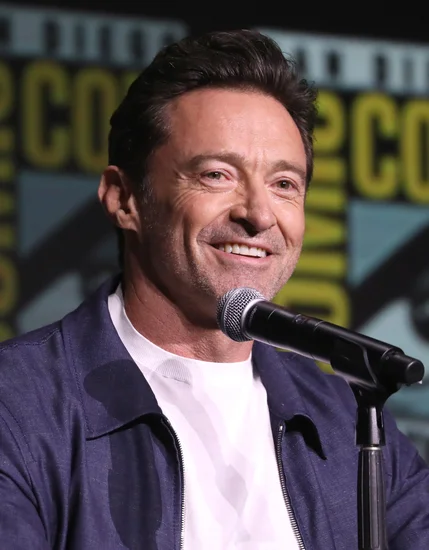
Future Hollywood star Hugh Jackman was born in Sydney, Australia. His versatile talents would span musical theater, film, and television across multiple decades.
Jackman’s career would encompass everything from Broadway musicals to superhero blockbusters. His dedication to his craft and charitable work made him one of entertainment’s most respected figures.
1932 – Dick Gregory Born in Missouri

Groundbreaking comedian and civil rights activist Dick Gregory was born in St. Louis, Missouri. His sharp wit and social commentary would challenge audiences and promote social justice.
Gregory’s comedy fearlessly addressed racial inequality and social issues during the turbulent 1960s. His courage in confronting controversial topics helped advance civil rights through entertainment.
1941 – Michael Mansfield Born in England

Prominent barrister Michael Mansfield was born in London, England. His legal career would focus on defending civil liberties and challenging establishment power.
Mansfield’s courtroom advocacy championed the rights of marginalized individuals and communities. His high-profile cases often highlighted systemic injustices within the British legal system.
1977 – Bode Miller Born in New Hampshire

Olympic skiing champion Bode Miller was born in Easton, New Hampshire. His fearless skiing style would revolutionize alpine racing and inspire a generation of athletes.
Miller’s unconventional approach to training and competition challenged traditional skiing methods. His Olympic success demonstrated that innovation and individuality could triumph in elite sports.
Notable Deaths on October 12
1999 – Wilt Chamberlain Dies at Age 63

Basketball legend Wilt Chamberlain died at his Los Angeles home at age 63. His passing marked the end of one of sports’ most dominant and statistically impressive careers.
Chamberlain’s records included scoring 100 points in a single game and averaging 50 points per season. His athletic achievements and larger-than-life personality made him an iconic figure in American sports history.
2011 – Dennis Ritchie Dies at Age 70
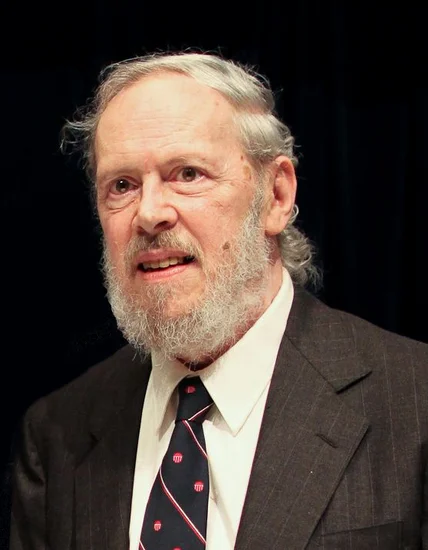
Computer science pioneer Dennis Ritchie died at age 70, leaving behind a revolutionary legacy in programming. His creation of the C programming language fundamentally transformed software development.
Ritchie’s contributions to computing touched virtually every aspect of modern technology. His work provided the foundation for operating systems, applications, and programming languages used worldwide.
1997 – John Denver Dies in Plane Crash

Beloved singer-songwriter John Denver died in a plane crash in California at age 53. His death ended the career of one of America’s most popular folk musicians.
Denver’s music celebrated nature, love, and the American spirit through timeless songs like “Country Roads” and “Rocky Mountain High.” His passing marked the loss of a voice that had defined an entire generation’s musical landscape.
2020 – Conchata Ferrell Dies at Age 77

Character actress Conchata Ferrell died at age 77 after a distinguished career in theater, film, and television. Her portrayal of Berta on “Two and a Half Men” brought her widespread recognition.
Ferrell’s acting career spanned decades of memorable supporting roles that showcased her exceptional talent. Her contributions to entertainment demonstrated the vital importance of character actors in storytelling.
2024 – Alex Salmond Dies at Age 69

Former Scottish First Minister Alex Salmond died at age 69, ending a career that shaped modern Scottish politics. His leadership of the Scottish independence movement made him one of Britain’s most influential politicians.
Salmond’s political legacy included transforming the Scottish National Party and leading the 2014 independence referendum. His death marked the end of an era in Scottish political history.
Holidays and Observances on October 12
Columbus Day and Related Observances
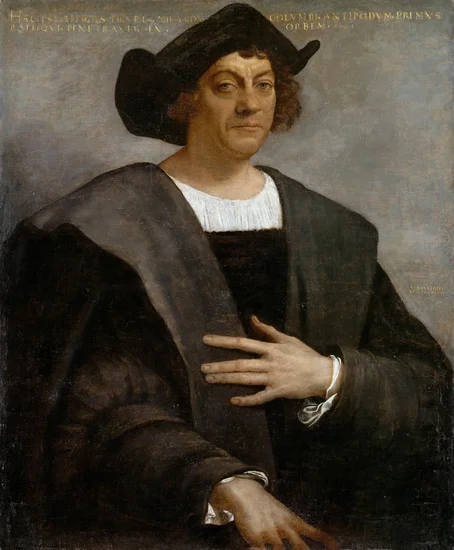
October 12 marks Columbus Day in several countries, commemorating Christopher Columbus’s arrival in the Americas. This date spawned various national celebrations across the Western Hemisphere.
Different nations observe this date with varying names and perspectives, from Spain’s National Day to Argentina’s Day of Respect for Cultural Diversity. These observances reflect evolving attitudes toward historical events and their contemporary significance.
Independence Day in Equatorial Guinea
Equatorial Guinea celebrates its Independence Day on October 12, marking freedom from Spanish colonial rule in 1968. This West African nation’s independence completed Spain’s decolonization process.
The celebration honors the country’s transition from colonial territory to sovereign nation. Independence Day festivities showcase Equatorial Guinea’s unique cultural heritage and national identity.
Our Lady of Aparecida in Brazil
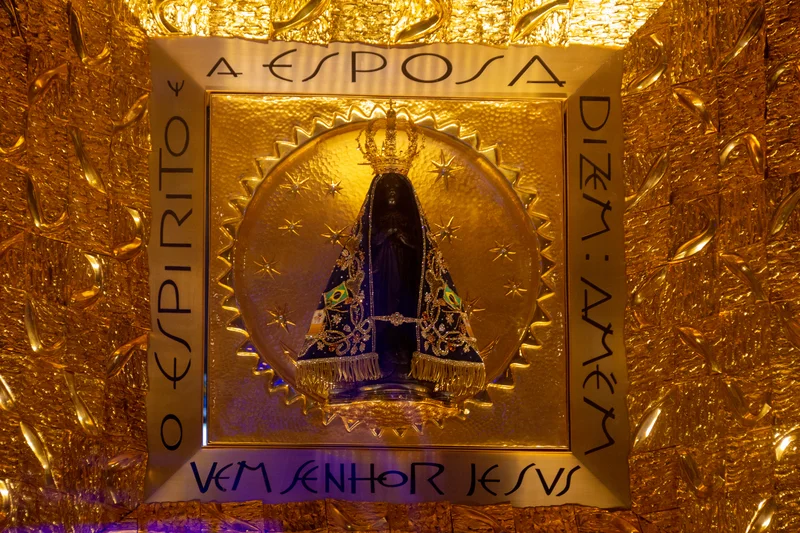
Brazil observes the feast of Our Lady of Aparecida, the country’s patron saint, on October 12. This religious celebration combines Catholic devotion with Brazilian cultural traditions.
Millions of pilgrims visit the Basilica of Our Lady of Aparecida to honor the saint. The observance reflects Brazil’s deep Catholic heritage and the integration of faith with national identity.
